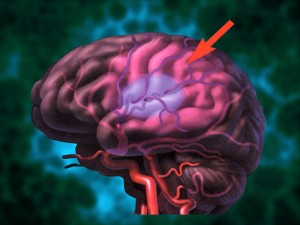 Adults who are older and have high distress levels are more apt to have a certain form of stroke than those people who are not as troubled, a recent study indicates. Distress is made up of a measure of depression, stress, dissatisfaction with one’s life and negativity.
Adults who are older and have high distress levels are more apt to have a certain form of stroke than those people who are not as troubled, a recent study indicates. Distress is made up of a measure of depression, stress, dissatisfaction with one’s life and negativity.
Researchers said that many previous studies look at depression and its relationship to risk of heart attack or stroke. However, this study wanted to find a general tendency that a negative outlook has on someone’s life.
In the study, over 4,000 adults were surveyed by researchers. The participants were 65 years of age or older and were located in three different neighborhoods of Chicago, Illinois. The majority of those taking part were African-American and women, with the average age of the participants being 77.
After other risk factors were accounted for by researchers, such as high blood pressure, weight, chronic health, age and smoking, they found an association between high levels of distress and a higher risk of a stroke due to bleeding inside the brain, instead of more common strokes due to blood clots.
